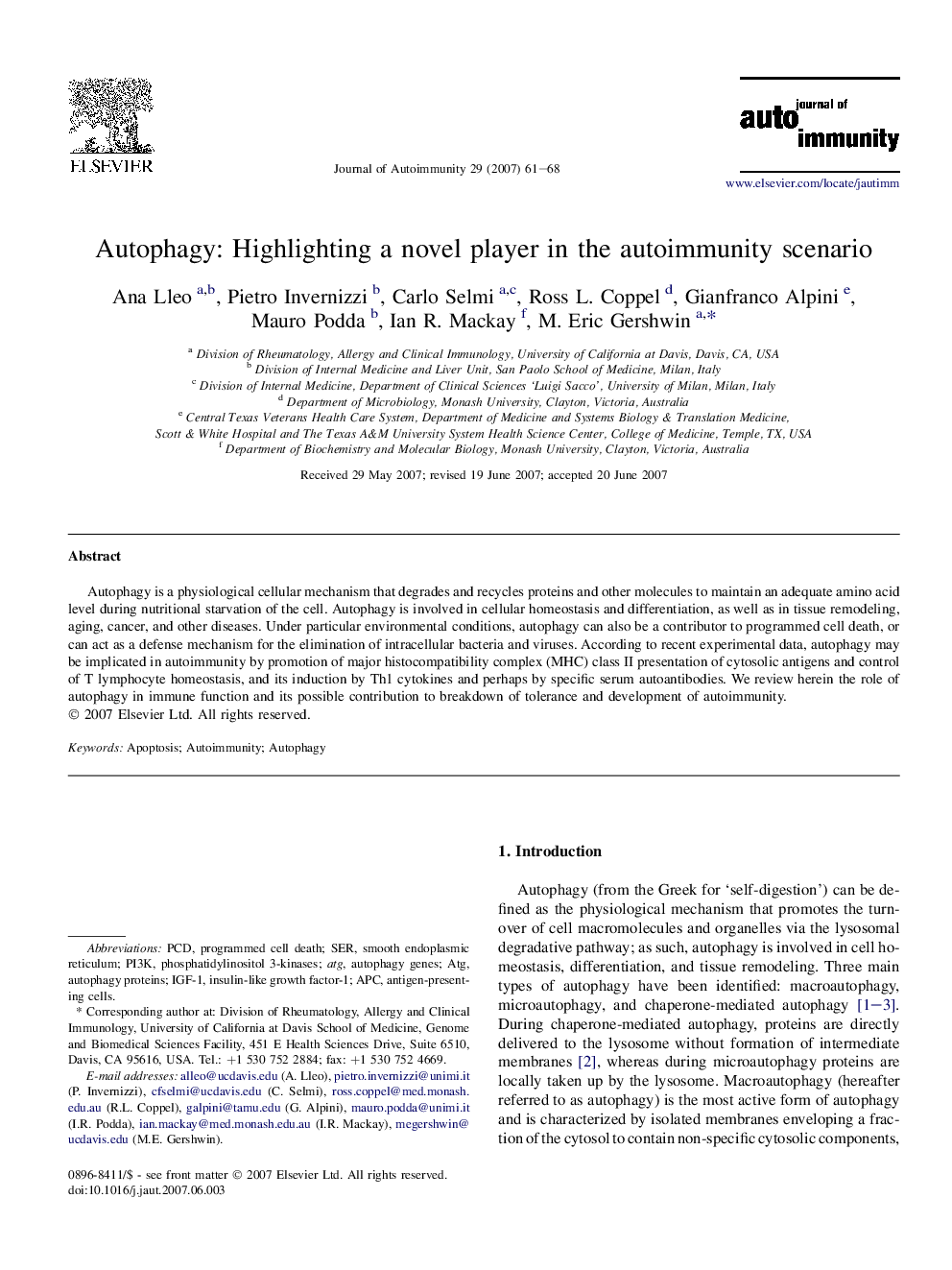| Article ID | Journal | Published Year | Pages | File Type |
|---|---|---|---|---|
| 3368498 | Journal of Autoimmunity | 2007 | 8 Pages |
Autophagy is a physiological cellular mechanism that degrades and recycles proteins and other molecules to maintain an adequate amino acid level during nutritional starvation of the cell. Autophagy is involved in cellular homeostasis and differentiation, as well as in tissue remodeling, aging, cancer, and other diseases. Under particular environmental conditions, autophagy can also be a contributor to programmed cell death, or can act as a defense mechanism for the elimination of intracellular bacteria and viruses. According to recent experimental data, autophagy may be implicated in autoimmunity by promotion of major histocompatibility complex (MHC) class II presentation of cytosolic antigens and control of T lymphocyte homeostasis, and its induction by Th1 cytokines and perhaps by specific serum autoantibodies. We review herein the role of autophagy in immune function and its possible contribution to breakdown of tolerance and development of autoimmunity.
